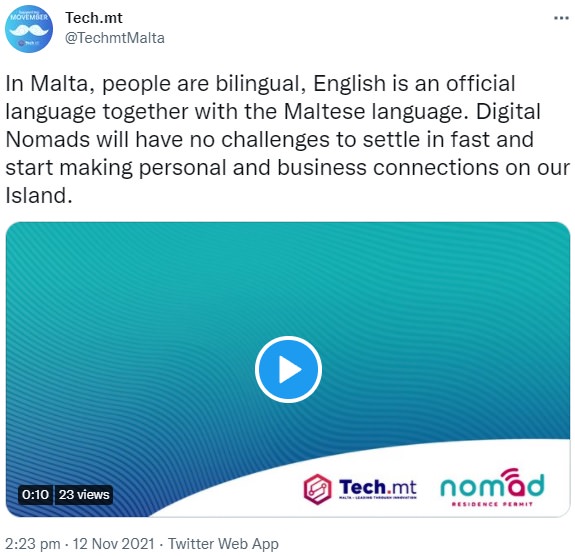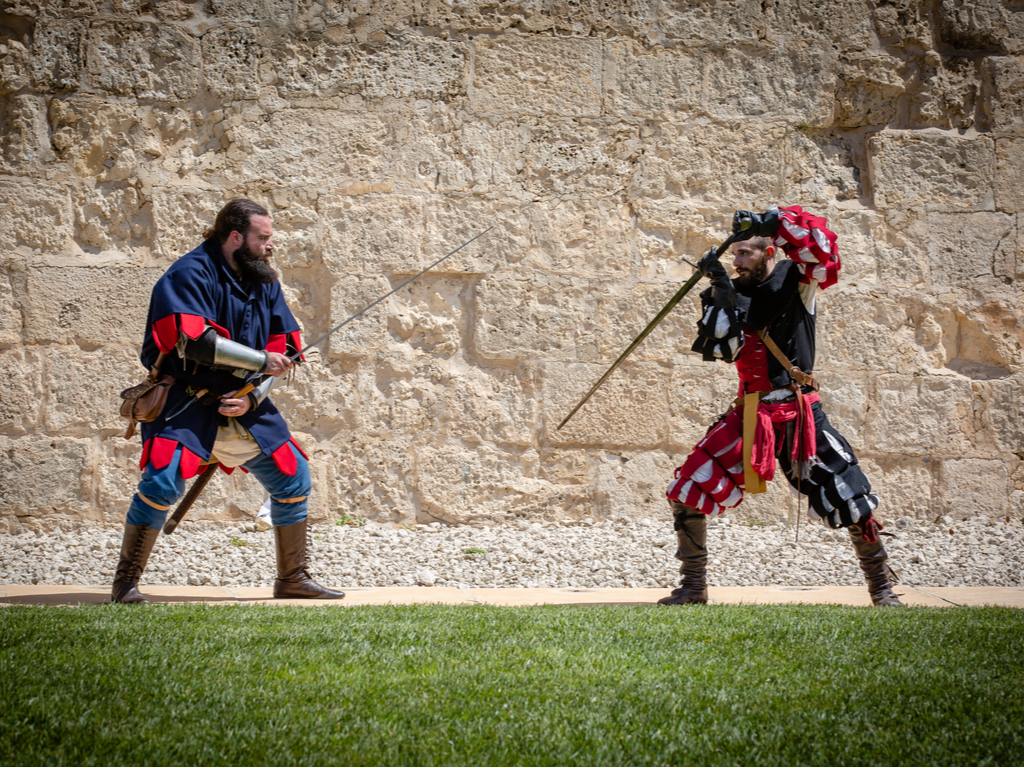What Languages Do They Speak In Malta? A Comprehensive Guide For Curious Minds
Imagine yourself in a sunny Mediterranean island where ancient history meets vibrant culture—and oh, the languages! Malta, a tiny yet fascinating country, is a melting pot of linguistic diversity. Whether you're planning a trip, studying abroad, or just curious about what languages do they speak in Malta, this guide has got you covered. So, buckle up and let's dive into the world of Maltese tongues!
Malta might be small, but it sure packs a punch when it comes to languages. It’s not just about one or two languages here; it's a tapestry of linguistic influences shaped by centuries of history. From the official languages to the slang you might hear on the streets, Malta offers a rich experience for language enthusiasts.
By the end of this guide, you’ll not only know what languages do they speak in Malta but also understand why these languages matter and how they reflect the island’s unique identity. Let’s get started!
Read also:What Is The Jamaican Slang For Friend Or Bro Exploring The Vibrant Language Of Jamaica
Table of Contents
Exploring the Maltese Language
Italian: The Lingua Franca of the Past
Other Languages Spoken in Malta
A Brief History of Languages in Malta
Read also:Discover The Power Of Butter Sugar Coffee A Comprehensive Guide
Languages in Malta’s Tourism Industry
Official Languages in Malta
So, let's kick things off with the official languages in Malta. You see, Malta has two official languages: Maltese and English. Yep, that’s right—two! Both languages are widely used in daily life, government, education, and media. This bilingual setup is a reflection of Malta’s rich history and its strategic location in the Mediterranean.
The Maltese language, or Malti as the locals call it, is the national language and is spoken by almost everyone on the island. English, on the other hand, is also widely spoken, especially in business, tourism, and education. This bilingualism makes Malta a unique destination for travelers and expats alike.
How Bilingualism Works in Malta
Now, you might be wondering how this bilingualism plays out in real life. Well, it’s pretty seamless. Signs, official documents, and even TV shows are often in both Maltese and English. You’ll find that most Maltese people switch between the two languages effortlessly, a phenomenon known as code-switching. It’s like they’re flipping channels in their brains, and boom—they’re speaking both languages in the same sentence!
The Role of English in Malta
English plays a significant role in Malta, and for good reasons. The influence of the British Empire during the colonial period left a lasting impact on the island. English became the second official language and remains a crucial part of daily life. Whether you’re at a café in Valletta or a classroom in Gozo, you’ll hear English being spoken.
But here’s the thing—Maltese English has its own flavor. It’s not your typical British or American English. Instead, it’s a blend of local expressions and borrowed words from Italian and Maltese. For example, you might hear someone say, “I’m going to the garage to do the service,” meaning they’re taking their car for maintenance. It’s quirky, fun, and totally Maltese!
English in Education
Education in Malta is heavily influenced by English. Most schools teach in English, and many subjects are taught using British curricula. This has helped Malta become a hub for English language education, attracting students from all over the world. If you’re thinking about learning English abroad, Malta could be the perfect place for you.
Exploring the Maltese Language
Now, let’s talk about the star of the show—the Maltese language. Malti is the only Semitic language written in the Latin alphabet, making it unique among the world’s languages. It’s a fascinating blend of Arabic, Italian, and a sprinkle of English and French. The result? A language that’s rich in vocabulary and cultural significance.
Maltese is spoken by around 520,000 people, which might seem small, but it’s incredibly important to the Maltese identity. You’ll hear it everywhere—in markets, on buses, and even in the parliament. It’s the language of tradition, family, and community.
Key Features of the Maltese Language
- It’s Semitic in origin, with roots in Siculo-Arabic.
- It borrows heavily from Italian and English.
- It has a unique alphabet, with letters like 'Ċ' and 'Ġ'.
- It’s spoken with a distinctive rhythm and melody.
Italian: The Lingua Franca of the Past
Italian has a long history in Malta, dating back to the Knights of St. John. During their rule, Italian was the language of administration and culture. Even today, you’ll find many Maltese people who speak Italian fluently, especially those who have been exposed to Italian media or have studied in Italy.
But here’s the twist—Italian influence is not just about speaking the language. It’s also about the vocabulary. Many Maltese words have Italian roots, making it easier for Italian speakers to understand some Maltese phrases. For example, the Maltese word for “thank you” is “grazzi,” which sounds a lot like the Italian “grazie.” Cool, right?
Italian in Modern Malta
While Italian isn’t an official language, it still holds a special place in Maltese society. Many TV channels broadcast Italian programs, and Italian music is popular among locals. If you’re an Italian speaker, you’ll find it easier to navigate Malta, especially in tourist areas.
Other Languages Spoken in Malta
Beyond Maltese and English, you’ll find a variety of other languages spoken in Malta. The island’s growing expat community has introduced languages like French, German, and Spanish. Plus, with tourism being a major industry, you’ll often hear languages from all over the world.
But here’s something interesting—Maltese people are known for their linguistic adaptability. They’re quick to learn new languages and adapt to different cultures. This makes Malta a truly global destination, where you can communicate in multiple languages.
Language Diversity in Malta
- French and German are taught in schools.
- Spanish is gaining popularity among the younger generation.
- Arabic speakers might find some familiar words in Maltese.
- Asian languages like Chinese and Japanese are becoming more common.
A Brief History of Languages in Malta
Malta’s linguistic journey is a fascinating tale of conquests, influences, and adaptations. From the Phoenicians to the Romans, and from the Arabs to the British, each civilization left its mark on the Maltese language. This rich history has shaped the way Maltese people communicate today.
For example, the Arab influence during the 9th to 13th centuries introduced many Semitic words into the Maltese vocabulary. Later, the Knights of St. John brought Italian into the mix. And finally, the British added English to the linguistic pot. The result? A language that’s a true reflection of Malta’s diverse past.
Key Historical Influences
- Phoenician and Roman: Early foundations.
- Arabic: Semitic vocabulary and structure.
- Italian: Cultural and administrative language.
- English: Modern influence and bilingualism.
Learning Languages in Malta
If you’re thinking about learning a new language, Malta might just be the perfect place for you. With its bilingual environment and focus on education, Malta offers excellent opportunities for language learners. Whether you want to learn English, Maltese, or even Italian, there’s something for everyone.
Many language schools in Malta offer courses tailored to different levels and needs. You can choose from intensive programs to casual classes, depending on your goals. Plus, being immersed in a bilingual environment makes learning a lot more fun and effective.
Tips for Learning Languages in Malta
- Engage with locals to practice speaking.
- Watch local TV shows to improve listening skills.
- Join language exchange groups to meet other learners.
- Use apps and online resources to supplement your learning.
Languages in Malta’s Tourism Industry
Tourism is a major industry in Malta, and language plays a crucial role in this sector. Whether you’re a hotelier, tour guide, or restaurant owner, being able to communicate in multiple languages is a must. This has led to a high demand for language skills in the tourism industry.
Most tourist-facing jobs require fluency in English, but knowing other languages like Italian, French, or German can be a big advantage. Plus, with the growing number of Asian tourists, languages like Chinese and Japanese are becoming more important.
Language Skills in Hospitality
- English is the default language for tourists.
- Italian is useful for Italian and Mediterranean tourists.
- German and French are popular among European visitors.
- Asian languages are gaining importance with increasing tourism.
Language Statistics in Malta
Let’s talk numbers. According to recent studies, around 90% of Maltese people speak English, while 88% speak Maltese. Italian is spoken by about 66% of the population, and other languages like French and German are also gaining ground. These statistics highlight Malta’s linguistic diversity and the importance of multilingualism.
But here’s the kicker—Malta’s linguistic landscape is constantly evolving. With globalization and increasing migration, new languages are being introduced, adding to the island’s rich tapestry of tongues.
Key Language Statistics
- Maltese: 88% of the population.
- English: 90% of the population.
- Italian: 66% of the population.
- Other languages: Growing in popularity.
Wrapping It Up
So, there you have it—a comprehensive guide to what languages do they speak in Malta. From the official languages of Maltese and English to the influence of Italian and other tongues, Malta offers a rich linguistic experience. Whether you’re a traveler, student, or expat, understanding the languages of Malta can enhance your experience and help you connect with the local culture.
Now, it’s your turn. Have you visited Malta and experienced its linguistic diversity? Or are you planning a trip and curious about the languages you’ll encounter? Let us know in the comments below. And don’t forget to share this guide with your friends who might be interested in Malta’s fascinating world of languages!
Until next time, keep exploring and keep learning!


